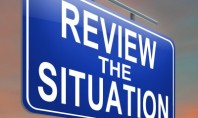TINA: There is no alternative – or is there?

The murmur of debate and discussion concerning the proper use, and increasing abuse, of their citizens’ personal data by governments has risen to a crescendo since the first of Edward Snowden’s revelations about the US’s NSA PRISM and the UK’s GCHQ Tempora programmes were publicied by the Guardian in June 2013. Alongside that there has been a steady stream of continued exposure of the way in which major (and not so major) companies exploit the personal data that their customers and users entrust to them. Throughout this an apparent paradox has puzzled me.
On one side of the debate there seems to be a group of organisations who are characterised by an enthusiastic belief in the property rights of data owners. Corporations like Google, Apple, Microsoft and so on are vigorous and rigorous in gathering to themselves the rights to patents, trademarks, copyright, software licences, etc. They use the legal system to pursue and seek damages from anyone who uses their data without permission, and/or without paying for it. Similarly, governments gather data to themselves, protecting it with laws of secrecy, security departments and a culture of restricted access, confidentiality and privilege. The paradox is that these organisations seem to be the ones who are the least concerned about the concerns and rights of everyone else, hoovering up other people’s personal data in enormous quantities, processing and exploiting it, and exchanging and trading it with almost anyone if the price is right. The principle of “do unto others as you would have done unto yourself” seems to have escaped their notice.
But there’s another, mirror-image paradox. Amongst the most vocal of people protesting about the revelations of pervasive government monitoring and surveillance, and commercial organisations’ use and abuse of personal data are the advocates of “open data”. They argue against the ownership rights associated with intellectual property, proposing that, for instance, software should be “open source”, that copyright can be ignored, and that the media industries campaigns against online piracy are repressive and must be resisted. Here again, we have a paradox, with an apparent contradiction existing between the rights they want to apply to their own personal data and the rights they are prepared to allow to others.
I cannot pretend to understand and explain away these paradoxes. However, I do think they are real, and that they make the positions adopted by these two opposing camps difficult to maintain in the longer term. I also think that their existence can at least in part be explained by the absence of viable alternatives. That is, both camps seem to agree that data, including personal data, is valuable, and that it is valuable not only to the person who originated it and to whom it belongs, but also to other people. The paradoxes in both their positions seem to arise because they can’t see a way of identifying and agreeing (i.e. negotiating) the value of bits of personal data, and then exchanging that value for the use they want to make of the other person’s data. In the absence of the processes and infrastructure needed to allow personal data to be traded the only alternative, not to put too fine a point on it, is to steal it. In the case of governments and corporations they are stealing from masses of citizens and consumers, in the case of the “pirates” they are citizens and consumers stealing from governments and corporations.
The principles advocated by Handshake, and the infrastructure and practical processes it offers to people who want to buy and sell personal data, are an alternative to the current state of contested legality or actual illegality. As the Dire Straits track “Tobacco Road” describes, after the pioneering but essentially lawless frontier folk come the settlers, traders and, I’m afraid, the law makers. It may be less exciting, but it’s more sustainable and, in the long run, it turns out to better for the great majority of people.

























